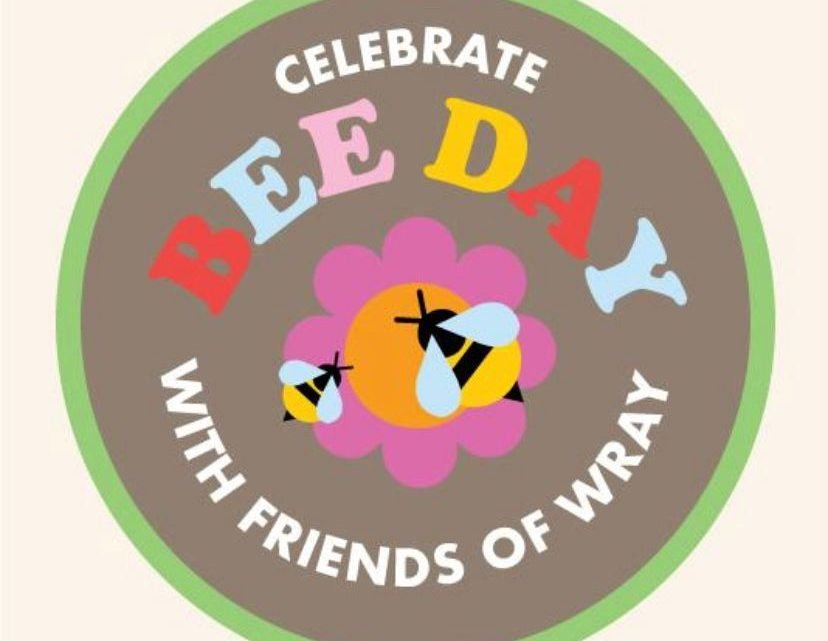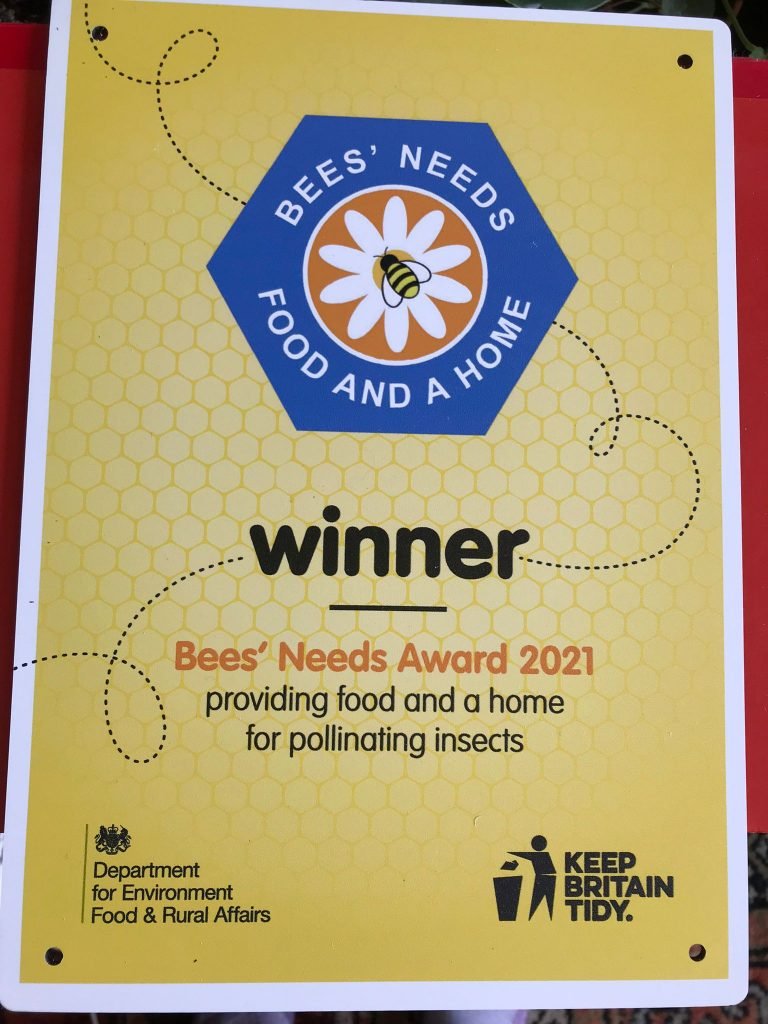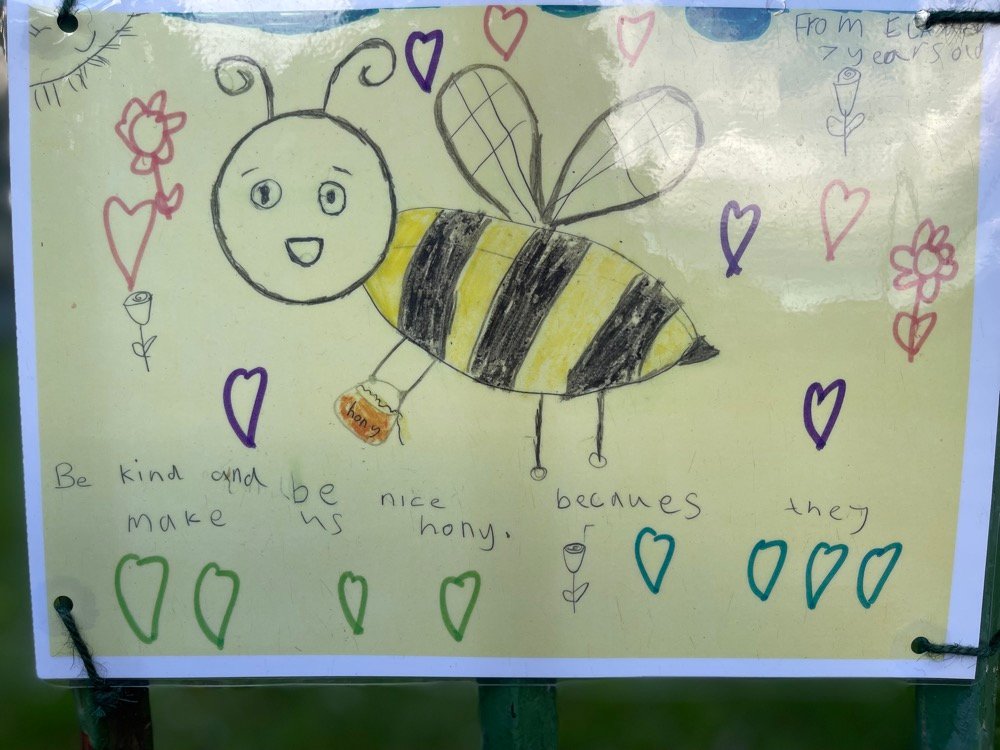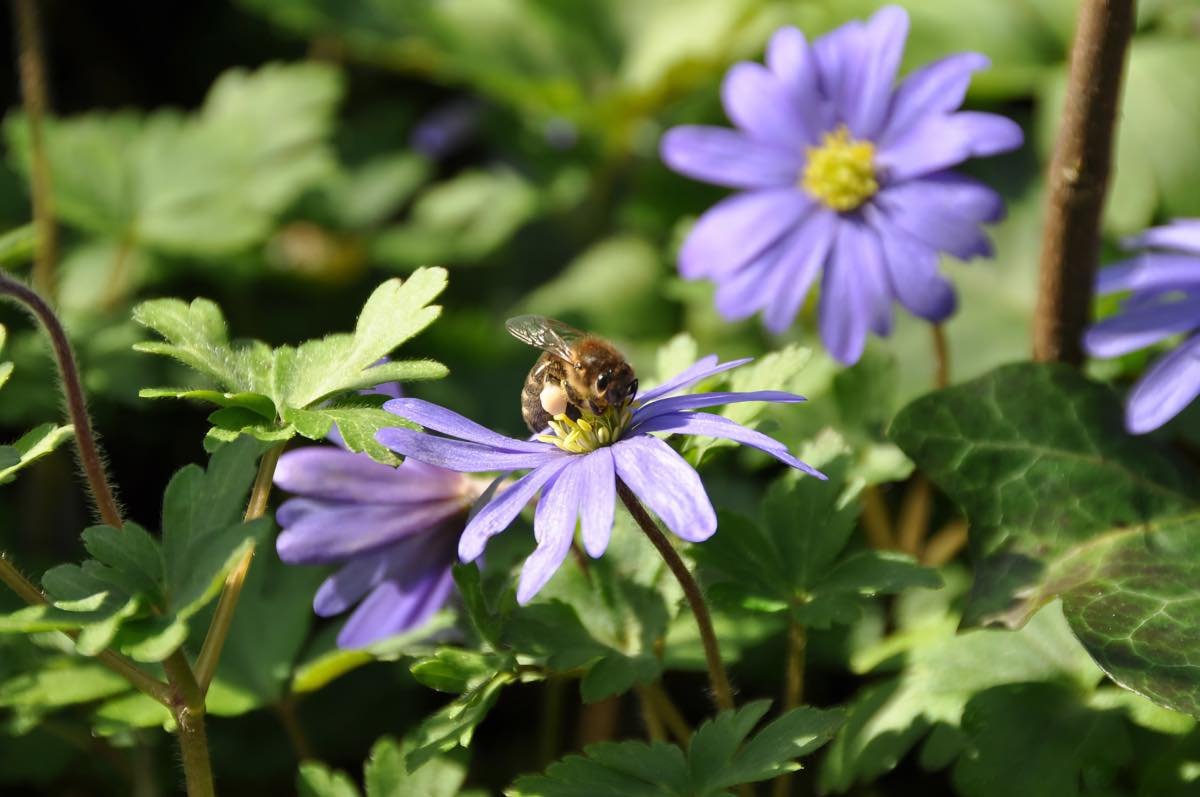
World Bee Day — and a special May 21 event
The Friends of Wray will host a special event on May 21 to celebrate World Bee Day and our recent recognition for our bees project in the park.
Julian Evans from Islington Council will join a small ceremony at 1:30pm on May 21 to present the award to the children who helped in the award-winning project. This will be followed by a series of fun activities for kids, all with a bee theme.
Happy Bees for a Happy Planet
May 20 is the fifth World Bee Day.
It celebrates the vital role played by bees and other pollinators in the ecosystem, and takes place on May 20 each year, in memory of Anton Janša, who pioneered beekeeping in the 18th century.

Why bees matter
Bees are the most important pollinator. They should matter to all humanity:
- Every third spoonful of world food depends on pollination.
- With pollination, bees contribute to successful agricultural production.
- Pollination-dependent crops are a major source of income for farmers.
- Pollinators have positive effects on the entire ecosystem, preserving natural habitats and biodiversity.
- Bees are also a good biological indicator of environmental conditions.
Humans need bees
Boštjan Noč, initiator of World Bee Day and president of the Slovenian Beekeepers’ Association, said at World Bee Day in connection with the role of bees in providing food: “To talk about reducing world hunger without ensuring conditions for the existence of bees and other pollinators is to pull the wool over people’s eyes. It is time for everyone to listen to bees, in particular leaders and decision-makers. From now on, 20 May will be a worldwide celebration of bees and beekeepers. I believe that with the proclamation of World Bee Day, the world will begin to think more broadly about bees, in particular in the context of ensuring the conditions for their survival, and thus for the survival of the human race.”

5 things you can do for bees every day
If you want to help the bees, there are some simple things you can do every day, according to World Bees Day:
- Plant or sow honey plants on balconies, terraces and gardens for decorative purposes.
- At home on the balcony, terrace or garden, put up a nesting box for bees.
- Avoid mowing grass during the peak flourishing of plants. Also mow grass in the evening hours, when the bees return to their hives.
- Use pesticides that are harmless to bees and spray plants in windless weather conditions early in the morning or late in the evening, when bees are back to their hives.
- Raise children’s and teenagers’ awareness about importance of the bees.
Plants that can help bees
If you want to help bees, then plant things like this wherever you can as they are known to provide what bees need: fruit trees, sage, oregano, pumpkins, peppers, mint, blueberries, melissa, acacia, rosemary, strawberries, thyme, lavender, spruce, fir, linden, basil, tomatoes, maple, currant, rosacea.
